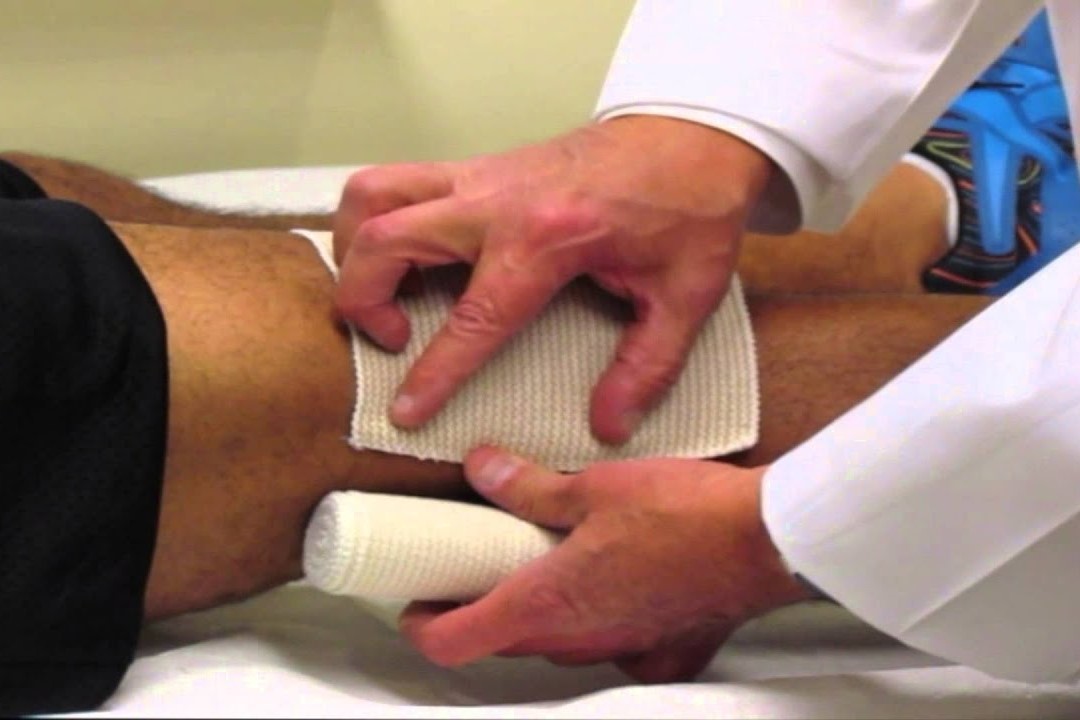
How to put on elbow and knee bandages
About bandages: elbow and knee injuries such as sprains and strains can be supported by a roller bandage. Find out what to do
Elbow and knee injuries such as sprains and strains can be supported by a roller bandage
To make sure there is effective support, bend the joint slightly and then apply the bandage in figure of eight turns.
Work from the inside to the outside of the upper surface of the joint and extend the bandage far enough each side so that there is an even pressure around the injury.
Elbow and knee bandages:
- Support the injury.
- Pass the bandage around the limb in figure of eight turns working from the inside to the outside of the joint.
- Applying even pressure each time you wrap.
- Check circulation beyond the bandage every 10 minutes.
Bandages: What to do
- Support the injury and make sure it’s in a comfortable position and partly bent.
- Place the tail end of the bandage on the inside of the joint, and start passing the bandage over and around the injury.
- Make one and a half turns so the tail end of the bandage is fixed and the joint is covered.
- Pass the bandage to the inner side of the limb just above the joint. Make a turn around the limb so the upper half of the bandage is covered.
- Pass the bandage from the inner side of the upper part of the limb to just below the joint. Then make one diagonal turn below the joint to cover the lower half of the bandage.
- Continue to bandage diagonally, above and below the joint injury in a figure of eight pattern. Extend the area of the bandage each time you wrap the bandage around the joint.
- To finish the bandage, make two straight turns around the limb and secure the end of the bandage with a safety pin or adhesive tape.
- Check the circulation beyond the bandage as soon as you’ve finished and recheck every 10 minutes.
- To do this press the skin beyond the edge of the bandage and check that colour returns to the skin within 2 seconds.
- If necessary, loosen the bandage and reapply.
Read Also:
Emergency Live Even More…Live: Download The New Free App Of Your Newspaper For IOS And Android
Treating Injuries: When Do I Need A Knee Brace?
Wrist Fracture: How To Recognise And Treat It
Carpal Tunnel Syndrome: Diagnosis And Treatment
Knee Ligament Rupture: Symptoms And Causes
Lateral Knee Pain? Could Be Iliotibial Band Syndrome
Knee Sprains And Meniscal Injuries: How To Treat Them?
Stress Fractures: Risk Factors And Symptoms
What Is OCD (Obsessive Compulsive Disorder)?
RICE Treatment For Soft Tissue Injuries
P.O.L.I.C.E. Vs R.I.C.E.: The Emergency Treatment For Acute Injuries
How And When To Use A Tourniquet: Instructions For Creating And Using A Tourniquet
Bone Callus And Pseudoarthrosis, When The Fracture Does Not Heal: Causes, Diagnosis And Treatment
First Aid, Fractures (Broken Bones): Find Out What To Look For And What To Do


